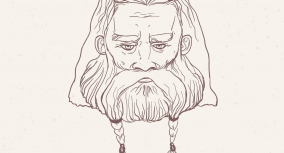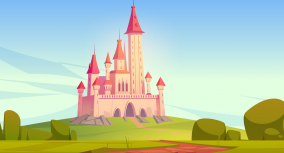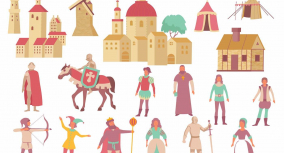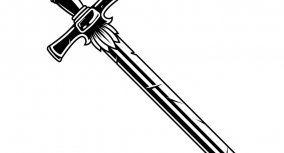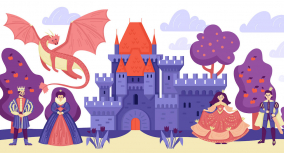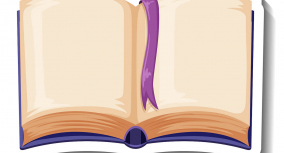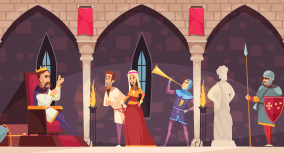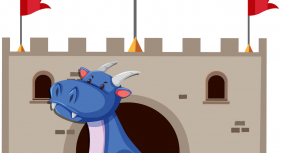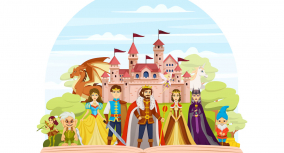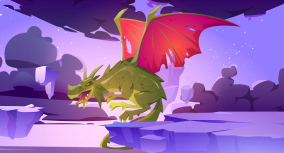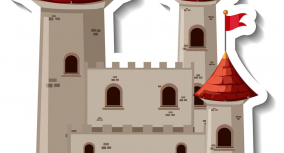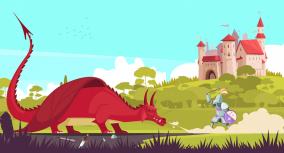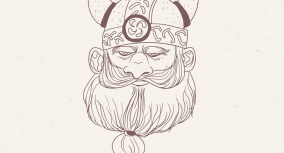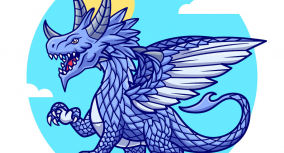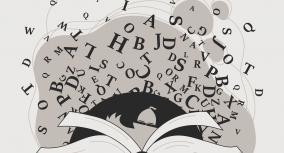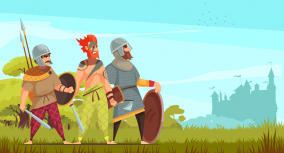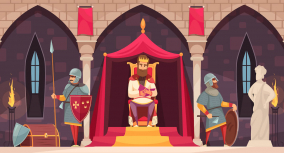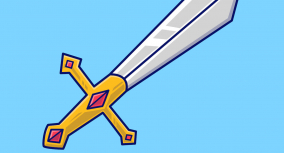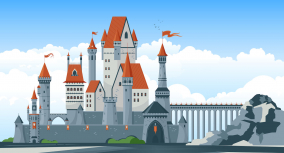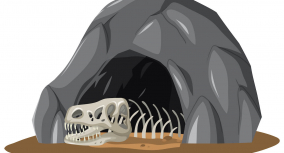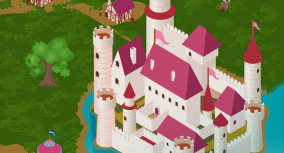Among the main Beowulf themes are the ideals of strength and heroism, the clash between good and evil, the concept of fate as a guiding force, and loyalty and bravery. It’s also important to mention the importance of hospitality in Beowulf, which highlights the cultural significance of generosity and honor in warrior societies. Beowulf theme of religion and the mix between pagan and Christian values is prominent throughout the text, enriching its moral and spiritual dimensions.
This article by our experts unpacks the themes of Beowulf. Read thoroughly to learn all about heroism, morality, and the ambiguities of human nature discussed in the 11th-century epic.
🗝️ The Key Themes in Beowulf
The key themes in Beowulf are: strength and heroism, religion, bravery and courage, hospitality, good vs. evil, revenge, loyalty, and fate.
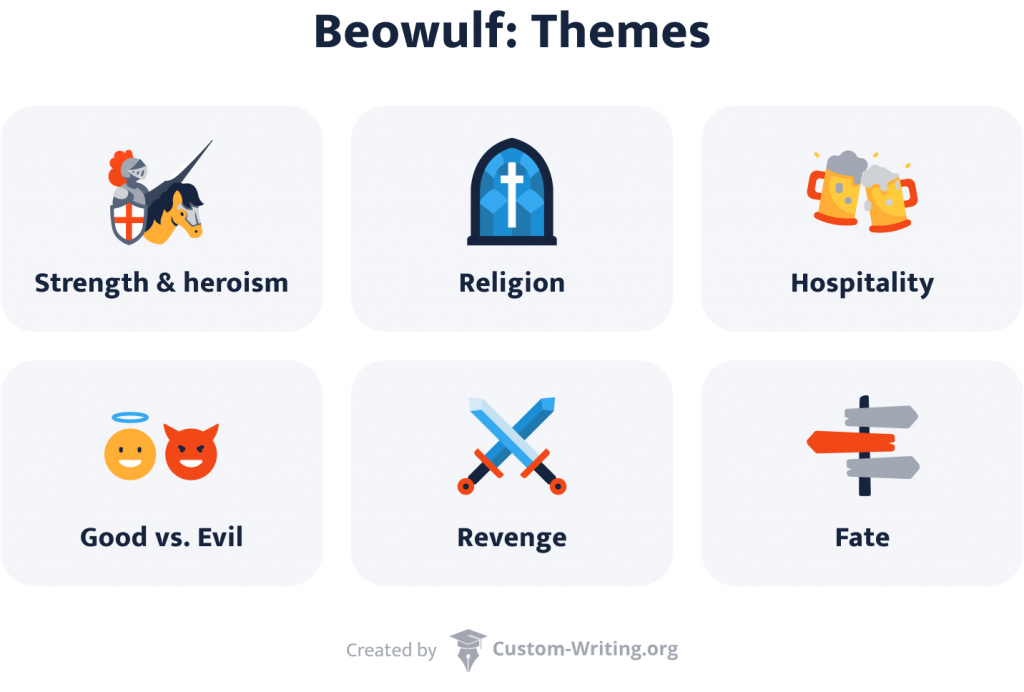
🦸 Strength & Heroism in Beowulf
Being stronger than anyone else does not immediately make one a hero. First, a hero shall be wise enough to balance their strength. Beowulf is a role model of a hero in this relation. He has the strength of thirty men in his hands, and no man is his match in battle. But when Unferth insults him, he does not put up a fight but uses reasoning and arguments to settle the conflict.
Second, a hero is one who uses their strength to help and support other people. The heroic code of conduct requires one to be humble, selfless, and philanthropic. In these aspects, Beowulf does not meet the “hero criteria.” Being respectful to the kings, Beowulf enjoys boasting of his achievements. He does all those superhuman deeds for himself. Fame is his principal motivator. Only when death is near, he thinks of his people, being glad that he has earned a treasure for them.
For the jewels I look on
Beowulf, Beowulf, Part XXXVIII, Lines 41-43
Thanks do I utter for all to the Ruler,
Wielder of Worship, with words of devotion,
The Lord everlasting, that He let me such treasures
Gain for my people ere death overtook me.
📿 Religion in Beowulf
Beowulf was written when Christianity had become an established religion in Europe, but not as much in Scandinavian lands. Moreover, the described events had happened many centuries before the manuscript was written. They had been orally transmitted between generations, and each new generation added something new.
There is an unresolvable scholarly debate on which references to religion were real and which were added by the writer. In the Middle Ages, when the manuscript was created, Paganism and Christianity coexisted. There are religious ambiguities and inconsistencies, but it is a work of fiction, not a sacred text. It means we should discuss the influence of Christianity and Paganism in Beowulf as literary devices that reflect the way people used to think.
Christian elements in Beowulf
Beowulf contains several references to The Bible. For instance, the text explicitly mentions the Great Flood and Cain. The Flood destroyed the giants who were from “Cain’s clan.” Grendel is also Cain’s descendent. Cain is referred to as a progenitor of Grendel, and of monsters in general.
For that bitter murder,
Beowulf, Narrator, Part II, Lines 55-59
The killing of Abel, all-ruling Father
The kindred of Cain crushed with His vengeance;
In the feud He rejoiced not, but far away drove him
From kindred and kind, that crime to atone for,
Meter of Justice.
The poet associates Grendel, his mother, and the dragon with hell. The Vision of Paul the Apostle matches this imagery: hell is the merge of water and fire in an abyss.
Paganism in Beowulf
Pagan symbols appear throughout the poem. Vengeance, feuds, fate, and pride are critical for plot development. Beowulf fights Grendel barehanded and without armor because “Fate will unwind as it must.”
The foe I must grapple, fight for my life then,
Beowulf, Beowulf, Part VII, Lines 67-69
Foeman with foeman; he fain must rely on
The doom of the Lord whom death layeth hold of.
The importance of a sword is a Pagan heritage. Swords are inherited from father to son. People treat them with respect and even name them (e.g., Hrunting) in Beowulf.
Christianity vs. Paganism
Is the poem a Christian allegory or a manifestation of Pagan beliefs? Beowulf was written when Anglo-Saxons had been Christians for a short time. Before converting to Christianity, they used to be pagans. Thus, many Anglo-Saxons preserved their pagan beliefs, trying to reconcile them with Christianity, which we find in Beowulf.
🦁 Bravery & Courage in Beowulf
In Beowulf, bravery is the essential quality of a warrior. The protagonist demonstrates his courage three times (in battles with Grendel, his mother, and the dragon). His story about the swimming competition when he killed nine sea monsters also shows how courageous he is. His kinsman Wiglaf is the only warrior as brave as Beowulf. While all the other Geats flee in fear of the dragon, Wiglaf stays to help his king. It was not just about brave deeds; the narrator highlights his loyalty.
The day is now come when the ruler of earthmen
Beowulf, Wiglaf, Part XXXVI, Lines 42-45
Needeth the vigor of valiant heroes:
Let us wend us towards him, the war-prince to succor,
While the heat yet rageth, horrible fire-fight.
Bravery is something one people could boast of to show what kind of people they were. Boasting was not viewed as a negative trait. It was the only way warriors could present their experience. There were no CVs or portfolios, so they had no choice.
Meanwhile, courage is a positive trait for a warrior, but not as much for a king. The narrator hints that Beowulf’s death marked the end of the prosperous era for the Geats. That is why a king is too responsible for his people to risk his life.
🙇 Loyalty in Beowulf
In Anglo-Saxon culture, loyalty defines the code of conduct of a good warrior. Beowulf, as a perfect hero and warrior, never questions his commitment to his people and the kings he subordinates to.
Beowulf helps King Hrothgar with fighting Grendel because many years ago, Hrothgar saved his father’s life. The King secured friendship between the Danes and the Geats. That is why Beowulf’s family had to stay loyal to him.
I remember this man as the merest of striplings.
Beowulf, Hrothgar, Part VII, Lines 2-6
His father long dead now was Ecgtheow titled,
Him Hrethel the Geatman granted at home his
One only daughter; his battle-brave son
Is come but now, sought a trustworthy friend.
The protagonist is ready to die for Hrothgar and the Danes. Later on, when he leaves for Geatland, he promises to remain loyal to the King and come to help if such need arises.
Beowulf’s loyalty also stretches to his uncle Hygelac. An excellent example of his selflessness is when Beowulf rejects the Queen’s offer to become Hygelac’s successor on the throne. Instead, he promises to be a wise advisor to the King’s son, who is too young at the moment.
All these situations play for Beowulf’s honor in the narrator’s and reader’s eyes.
☯️ Good vs. Evil in Beowulf
The concept of heroism in Beowulf is all about good vs. evil. The poem’s world is divided into evil monsters (Cain’s descendants) and good warriors who eliminate them, showing bravery, heroism, and loyalty. The monsters are evil because they have such qualities as greed, jealousness, and individualism. They are lonely and vicious.
Then the mighty war-spirit endured for a season,
Beowulf, Narrator, Part II, Lines 33-37
Bore it bitterly, he who bided in darkness,
That light-hearted laughter loud in the building
Greeted him daily; there was dulcet harp-music,
Clear song of the singer.
People live in a community, which makes them social beings. This fact prevents them from showing selfishness.
But there are exceptions. Queen Modthryth and King Heremod are evil characters. Their stories show that they had the same traits as the monsters. They were greedy, betrayed their people, and were jealous. This juxtaposition plays the role of instruction for future generations of how a reasonable person should live. Even if their actions are ultimately leading to death, people should act for their community’s benefit.
🔪 Revenge in Beowulf
If you wonder what the theme of Beowulf is, this is the answer. Throughout the epic poem, people and monsters revenge each other. Vengeance is the universal motivator for many characters. Grendel is angered by human celebrations and wants to make them pay for their joyfulness. Grendel’s mother avenges her son.
His mother moreover
Beowulf, Narrator, Part XX, Lines 26-29
Eager and gloomy was anxious to go on
Her mournful mission, mindful of vengeance
For the death of her son.
Beowulf defeats both to be quits with them for the deaths of many people. In the end, the warrior is determined to take revenge on the dragon.
Revenge in the poem contradicts Christian postulates of forgiveness. Pagan heritage makes the characters believe in vengeance as goodness. It is the question of honor, which leaves people no choice.
The question of paying back also has a positive meaning. Kings and queens reward Beowulf’s heroic deeds with gold and other valuable objects. It suggests the thought that everything has its price.
🎡 Fate in Beowulf
Beowulf attributes his problems, losses, and success to God’s will and impersonal fate. These two categories are responsible for any action in the poem if we take the narrator’s perspective. In most of his heroic deeds, Beowulf relies on fate.
He waits to fight Grendel unarmed because “Fate will unwind as it must.” Still, the hero considers the case of a failure: he asks to send his armor to King Hygelac if “death does take on me.” It looks as if both scenarios would satisfy him. That is where Beowulf’s courage stems from. He trusts fate and thinks that God’s will is wiser than human expectations.
At the wall ’twill befall us as Fate decreeth,
Beowulf, Beowulf, Part XXXV, Lines 64-66
Each one’s Creator. I am eager in spirit,
With the wingèd war-hero to away with all boasting.
Before the battle with the dragon, Beowulf feels his death is near. As a true warrior, he prefers to meet it with a sword in his hand. The narrator puts it as if Beowulf’s fate was to die fighting the dragon. However, Wiglaf blames the coward soldiers who ran away as soon as they saw the dragon’s fire. For some characters, fate vs. free will is a smaller asset.
🍖 Generosity & Hospitality in Beowulf
Themes and motifs of generosity and hospitality make up the setting of the poem as a whole. These features are critical in Anglo-Saxon culture and characterize successful authority and leadership. Hrothgar and Wealhtheow embody hospitality. In turn, Beowulf will repay their generosity to his own king, Hygelac.
The exchange of precious gifts is widely described in the text. But generosity is more than money. Hrothgar was generous when he bailed out Beowulf’s father. Beowulf risks his life to show loyalty to Hrothgar. The exchange with generosity and hospitality is the pillar that holds humanity together.
Be kind to the Geatmen,
Beowulf, Wealhtheow, Part XVIII, Lines 49-51
In gifts not niggardly; anear and afar now
Peace thou enjoyest.
In conclusion, it is worth saying that anyone could be generous in their good deeds. It is one of the morals in the epic poem, and it remains valid till our time. When someone comes to help you, repay with the same. If you are asked for assistance, do so, and you will be rewarded.
Thank you for reading this article! You might also want to take a look at Beowulf essay topics collection. And if you need to make the text of your essay more colorful, try our paraphrasing tool. Any questions left? Check the QA section!
🔗 References
- Heroism in “Beowulf”: A Christian Perspective William Reynolds
- Beowulf the work of single author, research suggests | Poetry | The Guardian
- Leneghan, F. (2024). Beowulf, the Wrath of God and the Fall of the Angels. English Studies, 105(3), 383–403.
- The Mode and Meaning of ‘Beowulf’ By Margaret E. Goldsmith, 2014
